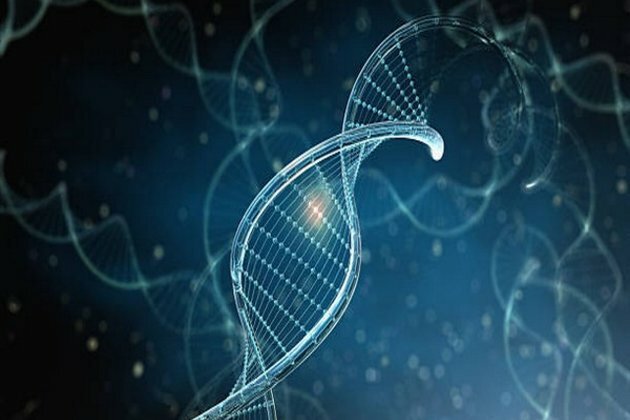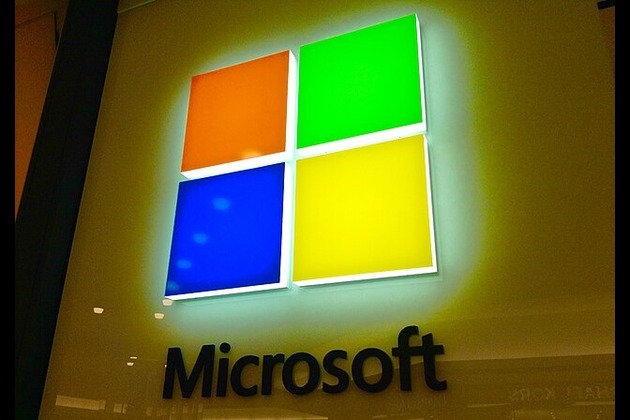Research: Mitochondrial DNA mutations associated with heart disease risk
ANI
05 Aug 2022, 07:25 GMT+10

Washington [US], August 5 (ANI): During a recent study researchers have discovered how mitochondrial function, and dysfunction, play critical roles in numerous diseases, and even ageing.
In a new study published in the online issue of Immunity, scientists at the University of California San Diego School of Medicine and Salk Institute for Biological Studies report a surprising link between mitochondria, inflammation and DNMT3A and TET2, a pair of genes that normally help regulate blood cell growth, but when mutated, are associated with an increased risk of atherosclerosis.
"We found that the genes DNMT3A and TET2, in addition to their normal job of altering chemical tags to regulate DNA, directly activate expression of a gene involved in mitochondrial inflammatory pathways, which hints as a new molecular target for atherosclerosis therapeutics," said Gerald Shadel, PhD, co-senior study author and director of the San Diego Nathan Shock Center of Excellence in the Basic Biology of Aging at Salk Institute. "They also interact with mitochondrial inflammatory pathways, which hints at a new molecular target for atherosclerosis therapeutics."While studying the roles of DNMT3A and TET2 mutations in clonal hematopoiesis, which happens when stem cells begin making new blood cells with the same genetic mutation, co-senior study author Christopher Glass, MD, PhD, professor in the departments of Medicine and Cellular and Molecular Medicine at UC San Diego School of Medicine, and colleagues noted that abnormal inflammatory signaling related to DNMT3A and TET2 deficiency in blood cells played a major role in the inflammation response that promotes development of atherosclerosis.
But the question remained how DNMT3A and TET2 genes were involved in inflammation and atherosclerosis -- the buildup of fatty plaques in arteries and the primary underlying cause of cardiovascular disease. It is estimated approximately half of Americans between the ages of 45 and 84 have atherosclerosis, which is the single leading cause of death in the United States and westernized nations.
"The problem was we couldn't work out how DNMT3A and TET2 were involved because the proteins they code seemingly do opposite things regarding DNA regulation," said Glass. "Their antagonistic activity led us to believe there may be other mechanisms at play, which prompted us to take a different approach and contact Shadel, who had uncovered the same inflammatory pathway years earlier while examining responses to mitochondrial DNA stress."What they foundInside mitochondria resides a unique subset of the cell's DNA that must be organized and condensed correctly to sustain normal function. Shadel's team had previously investigated the effects of mitochondrial DNA stress by removing TFAM, a gene that helps ensure mitochondrial DNA is packaged correctly.
Shadel and colleagues determined that when TFAM levels are reduced, mitochondrial DNA is expelled from mitochondria into the cell's interior, setting off the same molecular alarms that alert cells to a bacterial or viral invader and trigger a defensive molecular pathway that prompts an inflammatory response.
Glass' and Shadel's labs worked together to better understand why DNMT3A and TET2 mutations led to inflammatory responses similar to those observed during mitochondrial DNA stress. The teams applied genetic engineering tools and cell imaging to examine cells from people with normal cells, those with loss of function mutations in DNMT3A or TET2 expression and those with atherosclerosis.
They discovered that experimentally reducing the expression of DNMT3A or TET2 in normal blood cells produced similar results to blood cells that had loss of function mutations and to blood cells from atherosclerosis patients. In all three cases, there was an increased inflammatory response.
They also observed that low levels of DNMT3A and TET2 expression in blood cells led to reduced TFAM expression, which in turn led to abnormal mitochondria DNA packaging, instigating inflammation due to released mitochondrial DNA.
"We discovered that DNMT3A and TET2 mutations prevent their ability to bind and activate the TFAM gene," said first author Isidoro Cobo, PhD, a postdoctoral scholar in Glass' lab. "Missing or reducing this binding activity leads to mitochondrial DNA release and an overactive mitochondrial inflammation response. We believe this may exacerbate plaque buildup in atherosclerosis."Shadel said the findings broaden and deepen understanding of mitochondrial function and their role in disease.
"It's very exciting to see our discovery on TFAM depletion causing mitochondrial DNA stress and inflammation now have direct relevance for a disease like atherosclerosis," said Shadel. "Ever since we revealed this pathway, there has been an explosion of interest in mitochondria being involved in inflammation and many reports linking mitochondrial DNA release to other clinical contexts." (ANI) Share
Share
 Tweet
Tweet
 Share
Share
 Flip
Flip
 Email
Email
Watch latest videos
Subscribe and Follow
Get a daily dose of Philadelphia Herald news through our daily email, its complimentary and keeps you fully up to date with world and business news as well.
News RELEASES
Publish news of your business, community or sports group, personnel appointments, major event and more by submitting a news release to Philadelphia Herald.
More InformationBusiness
SectionAI saves $500 million for Microsoft as layoffs reshape strategy
REDMOND, Washington: Artificial intelligence is transforming Microsoft's bottom line. The company saved over US$500 million last year...
FTC’s rule to ease subscription cancellations struck down by court
WASHINGTON, D.C.: A federal rule designed to make it easier for Americans to cancel subscriptions has been blocked by a U.S. appeals...
Musk’s X loses CEO Linda Yaccarino amid AI backlash, ad woes
BASTROP, Texas: In a surprising turn at Elon Musk's X platform, CEO Linda Yaccarino announced she is stepping down, just months after...
Ex-UK PM Sunak takes advisory role at Goldman Sachs
NEW YORK CITY, New York: Former British prime minister Rishi Sunak will return to Goldman Sachs in an advisory role, the Wall Street...
Gold ETF inflows hit 5-year high as tariffs drive safe-haven bets
LONDON, U.K.: Physically backed gold exchange-traded funds recorded their most significant semi-annual inflow since the first half...
PwC: Copper shortages may disrupt 32 percent of chip output by 2035
AMSTERDAM, Netherlands: Some 32 percent of global semiconductor production could face climate change-related copper supply disruptions...
International
SectionCDC: US records 1,288 measles cases, most since 1992 outbreak
ATLANTA, Georgia: The United States is facing its worst measles outbreak in more than three decades, with 1,288 confirmed cases so...
Gaza War sucking life out of an Israeli generation
In the past month alone, 23 Israeli soldiers have been killed in Gaza—three more than the number of remaining living hostages held...
Faulty IT system at heart of UK Post Office scandal, says report
LONDON, U.K.: At least 13 people are believed to have taken their own lives as a result of the U.K.'s Post Office scandal, in which...
Travelers can now keep shoes on at TSA checkpoints
WASHINGTON, D.C.: Travelers at U.S. airports will no longer need to remove their shoes during security screenings, Department of Homeland...
Rubio impersonator used AI to reach officials via Signal: cable
WASHINGTON, D.C.: An elaborate impersonation scheme involving artificial intelligence targeted senior U.S. and foreign officials in...
Warsaw responds to migration pressure with new border controls
SLUBICE, Poland: Poland reinstated border controls with Germany and Lithuania on July 7, following Germany's earlier reintroduction...













